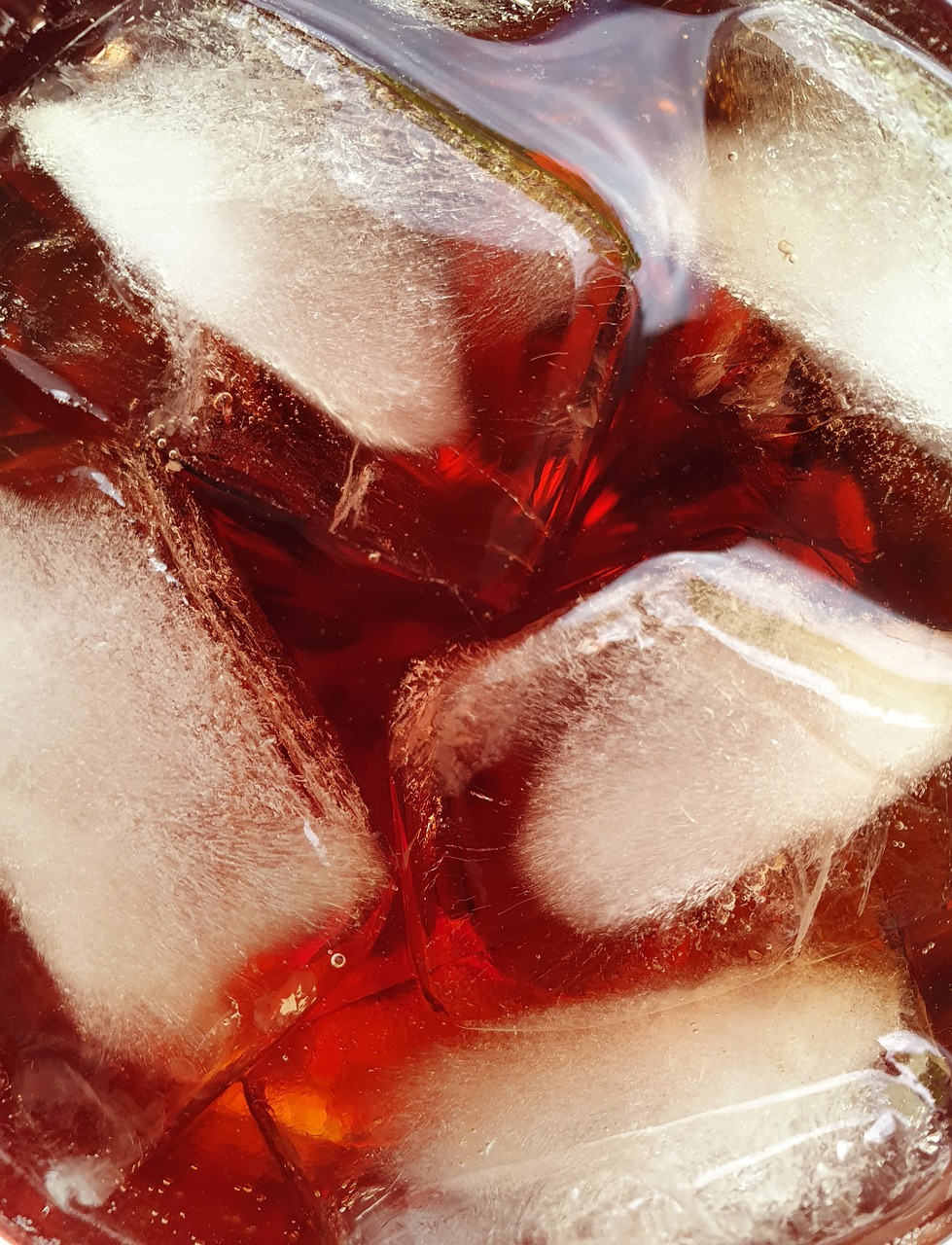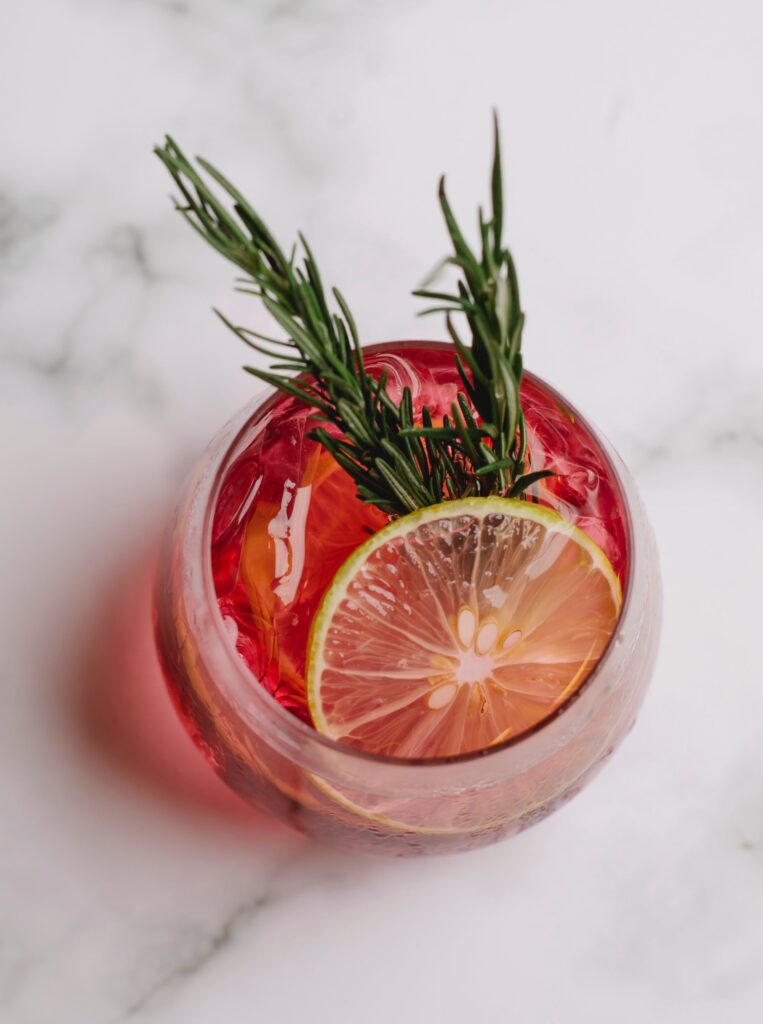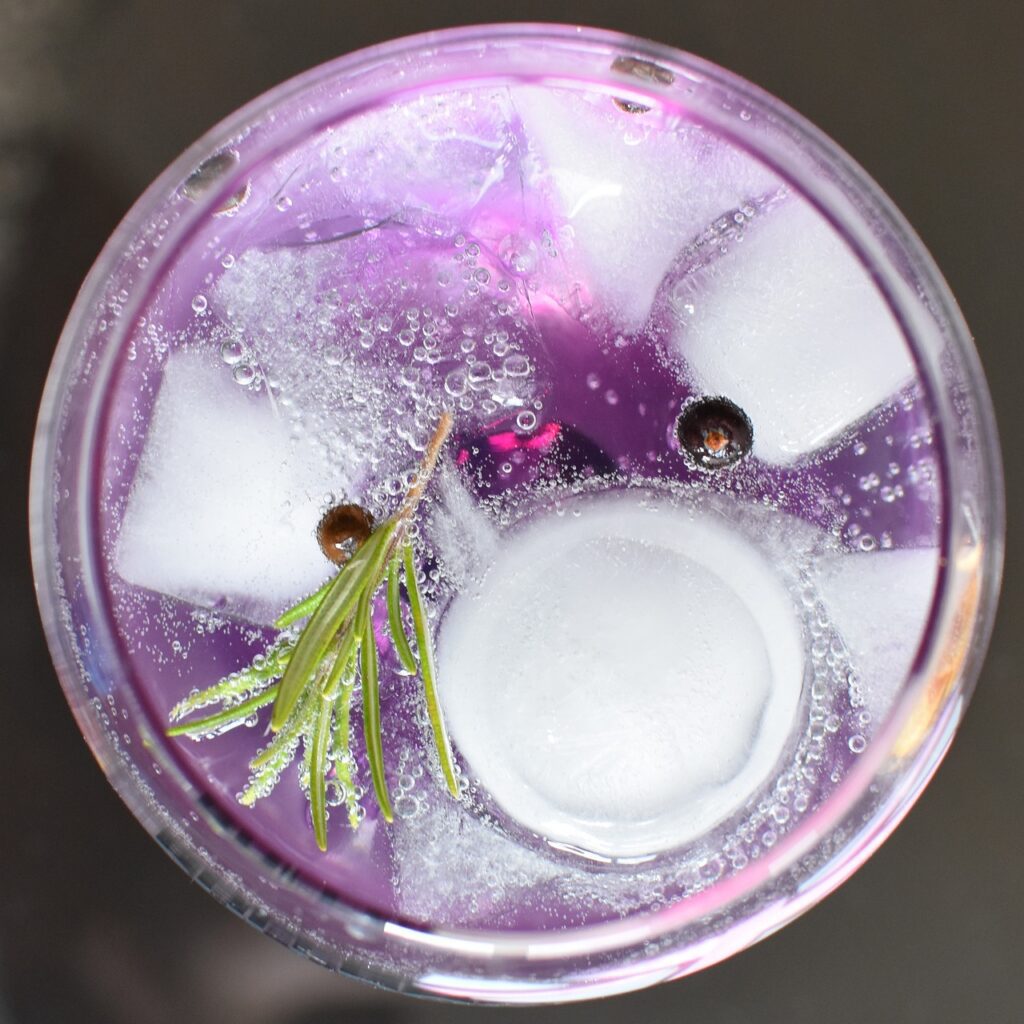Introduction
What is a Liqueur: A Brief Overview
A liqueur is a type of spirit-based drink that is known for its strong sweetness and additional flavorings. It is made by combining distilled spirits such as brandy, whiskey, or rum with various flavors and often includes the process of maceration or infusion to extract flavors from vegetal materials. Liqueurs are also typically sweetened to enhance their taste. The terms used to describe liqueurs can vary across different countries, with generic terms like aquavits, schnapps, eau de vies, or vodkas sometimes used for both spirits and liqueurs.
The Differentiating Factors of Liqueurs
When it comes to liqueurs, there are several factors that differentiate them from other alcoholic beverages:
- Alcohol Content: Liqueurs typically have a lower alcohol content compared to other spirits like vodka or whiskey. While the exact alcohol level can vary, liqueurs usually have an alcohol percentage ranging from 15% to 30%.
- Sweetness: Liqueurs are known for their sweet taste, which comes from the added sweeteners. This sweetness helps balance out the flavors and makes the liqueur more enjoyable to drink.
- Flavors: The flavors in liqueurs can vary greatly, depending on the ingredients used during the production process. From fruity flavors like orange, cherry, or raspberry to herbal flavors like mint or anise, liqueurs offer a wide range of options to suit different preferences.
- Versatility: Liqueurs are not only meant to be consumed neat or on the rocks. They are often used as key components in cocktails, adding depth of flavor and complexity to the drink. The distinct flavors of liqueurs can make them a versatile ingredient when creating various cocktail recipes.
In conclusion, liqueurs are a unique category of alcoholic beverages that bring sweetness, flavor, and versatility to the mix. Whether enjoyed on their own or used as a flavor enhancer in cocktails, understanding the differentiating factors of liqueurs can help in appreciating and crafting well-balanced and delicious drinks.

Distilled Spirits as a Base for Liqueurs
Common Liquor Bases in Liqueur Production
Liqueurs are crafted by using a distilled spirit as a base. Some of the commonly used liquor bases in liqueur production are:
- Brandy: Brandy, made from fermented fruit juice or wine, is often used as a base in liqueurs. Its rich fruity flavors and smoothness make it a popular choice.
- Whiskey: Whiskey, made from fermented grain mash, can also serve as a base for liqueurs. Its complex flavors and character add depth to the final product.
- Rum: Rum, made from sugarcane juice or molasses, is another popular base for liqueurs. Its tropical and sweet undertones complement various flavor combinations.
- Gin: Gin, known for its botanical infusion, is occasionally used as a base in liqueur production to add a distinct herbal character.
- Vodka: Although vodka is typically consumed as a clear, unflavored spirit, it can also be used as a base for liqueurs. Its neutral taste allows the added flavors to shine.
Enhancing Flavors Through Distillation
In the production of liqueurs, distillation techniques play a vital role in extracting flavors from various ingredients. Two methods commonly used are maceration and infusion:
- Maceration: This process involves steeping ingredients like fruits, herbs, or spices in the base spirit to extract their flavors. The mixture is left to sit for a specific period to allow the spirit to absorb the desired flavors. After maceration, the liquid is strained to remove the solid particles.
- Infusion: In this method, the base spirit is combined with the flavoring ingredients and heated to infuse the flavors. The heat helps extract the flavors more quickly and intensively. Once the desired flavors are achieved, the mixture is cooled and strained.
Both maceration and infusion contribute to the unique taste profile of liqueurs, allowing for the incorporation of a wide range of flavors. From the refreshing citrus zest to the warmth of spices, distillation techniques boost the complexity of liqueurs and create a harmonious blend of flavors.
Understanding the role of distilled spirits and distillation techniques in liqueur production provides valuable insight into the craftsmanship and creativity behind these delightful beverages. It also opens up a world of possibilities for mixing and enjoying liqueurs in cocktails or savoring their unique flavors neat or on the rocks.

The Sweetening Process
The Role of Sugar in Liqueur Production
Liqueurs are known for their sweet and flavorful taste, and sugar plays a crucial role in achieving this desired sweetness. When making liqueurs, a syrup composed of more than 2% of the total beverage volume is added to the base spirit and other flavoring ingredients. This syrup, commonly made with a combination of sugar and water, helps to balance the strong and often bitter flavors of the spirits and other ingredients.
Balancing Sweetness in Liqueurs
Finding the right balance of sweetness is essential in the production of liqueurs. Too much sugar can overpower the other flavors, while too little can result in a harsh and unbalanced taste. Master distillers and mixologists carefully measure and adjust the amount of syrup added to ensure a harmonious and enjoyable flavor profile.
To create a well-balanced liqueur, it is essential to consider the sweetness of the base spirit and the intensity of the other ingredients. Some liqueurs, such as fruit-based ones, may require less additional sweetness due to the natural sugars present in the fruits. On the other hand, liqueurs with more intense flavors, like coffee or chocolate, may require a higher level of sweetness to help mellow out the bitterness.
The sweetness of a liqueur can also be adjusted through dilution. By adding water or another neutral liquid, the sweetness can be reduced if desired. This allows for more versatility in cocktail recipes, as different cocktails may require varying levels of sweetness.
Overall, the sweetening process in liqueur production is a delicate art. It requires careful consideration of the base spirit, flavorings, and desired taste profile to create a well-balanced and enjoyable liqueur. Whether enjoyed on its own or used as a key ingredient in cocktails, the sweetness in liqueurs adds a delightful and indulgent touch to these beloved beverages.
Flavorings in Liqueurs
Exploring Fruits, Herbs, and Spices in Liqueurs
Liqueurs are renowned for their wide range of flavors, which are achieved through the addition of various natural and unnatural ingredients. Fruits, herbs, spices, sugars, and nuts are just a few examples of the flavorings used in liqueur production. These ingredients are carefully selected and combined to create unique and exciting taste profiles.
Fruits play a prominent role in many liqueurs, providing their natural sweetness and vibrant flavors. Popular fruit liqueurs include raspberry, cherry, and orange. These liqueurs often undergo a maceration process, where the fruits are soaked in the base spirit to extract their flavors. The result is a liqueur that captures the essence of the fruit and brings a refreshing taste to cocktails and desserts.
Herbs and spices are another essential component of liqueur flavorings. From classics like mint and cinnamon to more unique choices such as lavender and cardamom, these ingredients add depth and complexity to the liqueurs. They can be infused directly into the base spirit or added in the form of extracts or essential oils. The use of herbs and spices allows distillers to create liqueurs with a wide range of flavor profiles, from soothing and herbal to warm and spicy.
Creativity and Innovation in Liqueur Flavor Profiles
The world of liqueurs is filled with creativity and innovation, as distillers constantly seek to push the boundaries of flavor possibilities. New flavors and combinations are continuously being explored, resulting in an ever-expanding selection of liqueurs for consumers to enjoy.
One example of innovative liqueur flavors is the rise of unique botanical blends. These liqueurs incorporate a variety of botanical ingredients, such as flowers, roots, and leaves, to craft intricate and one-of-a-kind flavors. The use of botanicals adds an element of sophistication and elegance to the liqueurs, appealing to those seeking a more refined drinking experience.
Another trend in liqueur flavor profiles is the incorporation of unconventional ingredients. Distillers are experimenting with ingredients such as exotic fruits, rare spices, and even unusual savory elements like bacon or truffle. These bold and unexpected flavor combinations provide a refreshing twist on traditional liqueurs and cater to those with adventurous palates.
In conclusion, flavorings form the heart and soul of liqueurs, bringing their distinct and enticing taste profiles to life. From the familiarity of fruits and spices to the excitement of botanical blends and unconventional ingredients, liqueurs offer a world of flavors to explore. With each sip, these beautifully crafted spirits invite us to indulge in the artistry and innovation of the liqueur industry.

Popular Liqueurs and Their Characteristics
Overview of Well-known Liqueurs and Their Unique Traits
Liqueurs are renowned for their wide range of flavors, achieved through the addition of various natural and unnatural ingredients. Fruits, herbs, spices, sugars, and nuts are just a few examples of the flavorings used in liqueur production. These ingredients are carefully selected and combined to create unique and exciting taste profiles.
Fruits play a prominent role in many liqueurs, providing their natural sweetness and vibrant flavors. Raspberry, cherry, and orange liqueurs are particularly popular, capturing the essence of the fruits and bringing a refreshing taste to cocktails and desserts. The maceration process is often used, where the fruits are soaked in the base spirit to extract their flavors.
Herbs and spices also play a key role in liqueur flavorings. Mint, cinnamon, lavender, and cardamom are just some examples of the wide range of choices available. These ingredients can be infused directly into the base spirit or added in the form of extracts or essential oils. The use of herbs and spices allows distillers to create liqueurs with a wide range of flavor profiles, from soothing and herbal to warm and spicy.
Notable Liqueurs in Cocktails and Mixology
The world of liqueurs offers endless possibilities in cocktails and mixology, with various notable options to explore. Here are a few examples:
- Triple sec: A citrus-flavored liqueur that adds a sweet and tangy note to cocktails like the Margarita.
- Amaretto: A nutty-flavored liqueur made from almonds or apricot pits. It is commonly used in cocktails like the Amaretto Sour or the classic Amaretto Martini.
- Bailey’s Irish Cream: Known for its creamy and chocolatey taste, Bailey’s is a popular addition to coffee-based cocktails like the Irish Coffee or as a smooth dessert liqueur.
- Campari: A bitter liqueur with a distinct flavor profile, Campari is a key ingredient in classic cocktails like the Negroni and the Americano.
- Frangelico: A hazelnut liqueur that pairs well with coffee or chocolate-based cocktails, creating a rich and indulgent flavor experience.
These are just a few examples of the vast array of liqueurs available for mixologists to experiment with. The versatility of liqueurs allows for endless creativity in crafting unique and delicious cocktails.
Recipes and Pairings
Delicious Cocktail Recipes Using Liqueurs
For those who enjoy experimenting with different flavors and creating unique cocktails, liqueurs provide a world of possibilities. Here are a few delicious recipes to try:
- Spring Fling Cocktail
Ingredients: 2 oz gin, 1 oz elderflower liqueur, 1 oz lemon juice, 1 oz simple syrup, fresh mint leaves
Instructions: In a shaker, muddle a few mint leaves. Add ice, gin, elderflower liqueur, lemon juice, and simple syrup. Shake well and strain into a glass. Garnish with a mint sprig. - Coconut Cream Pie Martini Ingredients: 2 oz vanilla vodka, 1 oz coconut rum, 1 oz coconut liqueur, 1 oz cream of coconut Instructions: In a shaker, combine all ingredients with ice. Shake well and strain into a martini glass. Garnish with toasted coconut flakes.
- Berry Basil Smash Ingredients: 2 oz vodka, 1 oz raspberry liqueur, 1 oz lemon juice, fresh basil leaves, soda water Instructions: Muddle a few basil leaves in a glass. Add vodka, raspberry liqueur, and lemon juice. Fill the glass with ice and top with soda water. Stir gently and garnish with a basil leaf and raspberries.
Liqueur Pairings with Food and Desserts
Liqueurs can also enhance the flavors of various dishes and desserts when used in pairing. Here are some recommendations:
- Dark Rum: The woody and caramelized notes of dark or aged rum make it an excellent companion for grilled foods like steak and ribs. It also pairs beautifully with rich desserts like chocolate and pineapple-based dishes.
- Sweet Cordials: Match the major flavor component of the dessert with a complementary liqueur. Irish creams on ice complement coffee flavors, while fruit-based cordials add a sweet and fruity touch to desserts like cheesecake.
- Tart Liqueurs: Tart liqueurs, often consumed as aperitifs, can also refresh the palate between courses. Try pairing them with light and refreshing dishes like salads or seafood.
When pairing liqueurs with food, consider the characteristics of the liqueur and the flavors of the dish. The goal is to create a harmonious balance or exciting contrast between the two.
Remember, these suggestions are just a starting point, and there are countless liqueur options and pairing possibilities to explore. Let your creativity guide you in discovering new and delightful combinations. Enjoy the journey of experimenting with flavors and creating tasteful experiences with liqueurs!
Exploring the World of Cordials
Understanding the Distinction Between Liqueurs and Cordials
Liqueurs and cordials are both sweetened distilled spirits, but there is a subtle difference between the two. Liqueurs are often used in cocktails to add a sweet flavor, while cordials are typically enjoyed neat or on the rocks.
Unique Aspects of Cordial Production
Cordials have their own unique production process that sets them apart from other spirits. Here are a few key aspects of cordial production:
- Flavor Infusion: Cordials are often made by infusing fruits, herbs, or spices into a base spirit. This infusion process allows the flavors to meld together and create a complex and unique taste profile.
- Sweetening: Cordials are typically sweetened with sugar or another sweetener to balance out the flavors and create a smooth and enjoyable drinking experience. The amount of sweetener used can vary depending on the desired taste.
- Aging: Some cordials may undergo a period of aging to further develop their flavors. This can involve storing the spirit in wooden barrels or other aging vessels, allowing the flavors to mellow and become more rounded.
- Versatility: Cordials can be enjoyed on their own as a sipping spirit or used as a key ingredient in a variety of cocktails and mixed drinks. Their sweet and flavorful nature makes them a popular choice for adding depth and complexity to many beverage recipes.
When exploring the world of cordials, it’s important to consider the flavors and characteristics of each spirit. From fruity liqueurs to herbal-infused varieties, there are endless possibilities for discovering new and exciting tastes. Whether sipped neat or mixed into a creative cocktail, cordials offer a world of flavor exploration for spirits enthusiasts.
Benefits of Liqueur Membership and Rewards
Discovering Membership Programs and Rewards in the Liqueur Industry
Membership programs and rewards are an exciting way for liqueur enthusiasts to enhance their spirits experience. By joining a membership program, individuals can gain access to exclusive discounts, special events, and other unique perks. These programs are designed to reward loyal customers and provide them with added value for their support.
Some of the benefits of joining a liqueur membership program include:
- Product discounts: Members often receive exclusive discounts on a wide range of liqueurs and spirits. This allows members to save money while trying new and exciting products.
- Special events: Membership programs may offer access to special events such as tastings, workshops, and dinners. These events provide an opportunity to learn more about different liqueurs and interact with experts in the industry.
- Early access to new releases: Members may have the chance to taste and purchase new liqueur releases before they become available to the general public. This gives members the opportunity to be amongst the first to experience innovative flavors and products.
Unlocking Exclusive Offers and Access
In addition to discounts and special events, membership programs often provide members with exclusive offers and access to limited-edition releases. These offers can include:
- Limited-edition releases: Members may have the chance to purchase rare and limited-edition liqueurs that are not available to the general public. These exclusive releases often come in unique packaging and offer a truly special drinking experience.
- Private tastings: Membership programs may offer private tastings where members can sample a selection of premium liqueurs guided by knowledgeable staff members. These tastings allow members to explore new flavors and learn more about the craftsmanship behind each spirit.
- Personalized recommendations: Members may receive personalized recommendations based on their preferences and past purchases. This ensures that members are introduced to new liqueurs that align with their tastes and interests.
- Insider information: Members often receive exclusive newsletters or updates that provide them with insider information about upcoming releases, industry trends, and more. This allows members to stay informed and be in the know about the latest happenings in the liqueur world.
By joining a liqueur membership program, individuals can elevate their spirits journey and gain access to a range of exciting benefits. Whether it’s the opportunity to try rare releases, attend exclusive events, or receive personalized recommendations, membership programs offer a world of rewards for liqueur enthusiasts.

Conclusion
Summary of Liqueur’s Distinctive Nature and Versatility
Liqueurs and spirits have distinct differences, with liqueurs being sweetened and flavored spirits created through distillation and flavoring processes. The wide range of available liqueurs showcases the ingenuity and biodiversity in the industry, providing enthusiasts with a multitude of unique flavors and experiences.
Enjoying the World of Liqueurs Responsibly
While membership programs and rewards enhance the liqueur experience, it is essential to consume and enjoy liqueurs responsibly. Moderation in consumption and understanding one’s limits are crucial for a safe and enjoyable experience. Additionally, always adhere to legal drinking ages and guidelines to ensure responsible enjoyment of liqueurs.
FAQ: What Is a Liqueur?
Q1: What is a liqueur?
A liqueur is a sweetened and flavored spirit that is typically enjoyed after a meal. It is often described as a dessert-like alcoholic beverage due to its rich and indulgent taste. Liqueurs are made by infusing fruits, herbs, spices, flowers, or nuts into a base spirit, such as vodka, rum, or brandy.
Q2: How are liqueurs different from other spirits?
Unlike other spirits like vodka, whiskey, or gin, which are generally consumed straight or mixed with non-alcoholic beverages, liqueurs are known for their intense flavors and sweetness. They are formulated to be sipped neat, on the rocks, or used as ingredients in cocktails to add depth and complexity.
Q3: What are some popular liqueurs?
There is a wide range of liqueurs on the market, with countless flavors and styles to choose from. Some popular examples include:
- Baileys Irish Cream: A creamy blend of Irish whiskey, dairy cream, and chocolate flavors.
- Grand Marnier: A French liqueur made with cognac and flavored with orange essence.
- Amaretto: An almond-flavored liqueur that originated in Italy.
- Kahlúa: A coffee-flavored liqueur from Mexico, often used in cocktails like the White Russian.
- Campari: An Italian bitter liqueur known for its vibrant red color and bold flavor.
Q4: How are liqueurs made?
Liqueur production involves macerating or distilling various ingredients to extract their flavors. These ingredients are then combined with a base spirit and sweetened with sugar or syrup to achieve the desired taste. Aging in barrels or bottles may also occur to enhance the flavors and smoothness of the liqueur.
Q5: How should liqueurs be enjoyed?
Liqueurs can be enjoyed in various ways, depending on personal preference and the specific liqueur. They are often sipped neat or on the rocks to savor the complex flavors. Additionally, liqueurs are versatile ingredients in mixology and can be used to enhance cocktails, coffee, or desserts. They also make delightful additions to hot beverages like hot chocolate or coffee.
Q6: What is the alcohol content of liqueurs?
The alcohol content of liqueurs can vary significantly, ranging from 15% to 55% Alcohol by Volume (ABV). However, many common liqueurs typically have an ABV between 20% and 40%. It’s essential to check the label for accurate information regarding the alcohol content.
Q7: Are liqueurs gluten-free?
Most pure liqueurs, which are made from distilling fruits, herbs, or spices, are gluten-free. However, some flavored liqueurs may contain additives that could potentially contain gluten. It’s always recommended to check the label or contact the manufacturer for specific allergen information.
Q8: Are liqueurs suitable for vegetarians or vegans?
While many liqueurs are suitable for vegetarians, some may use animal-derived ingredients or processes during production. It’s advisable to read the label or reach out to the manufacturer for clarification if you follow a specific dietary lifestyle.
In conclusion, liqueurs are delightful sweet and flavored spirits that add a touch of indulgence to any occasion. With their wide range of flavors and versatility, these liqueurs can be enjoyed neat, on the rocks, or used in a variety of imaginative cocktails and culinary creations.

We are introducing Alberto Wilson, the content owner at South Avenue Bar! 🍹🍻Join us at South Avenue Bar, a modern establishment boasting an impressive cocktail menu and a vibrant atmosphere. For those who prefer a classic brew, we also offer a delightful selection of draft beers, poured just right to ensure a perfect pint every time.
Immerse yourself in the rhythms of Latin music during our weekly Latino night, where you can sip on refreshing margaritas and mojitos while enjoying the vibrant beats. Indulge in our delectable Greek tapas, featuring mouthwatering olives and other delightful small bites that perfectly complement your drink of choice.
Whether you’re seeking an exquisite cocktail experience or a laid-back evening with your favorite beer, South Avenue Bar, under the guidance of Alberto Wilson, promises a memorable and delicious journey through the world of libations. Come and join us today! 🍸🎉
